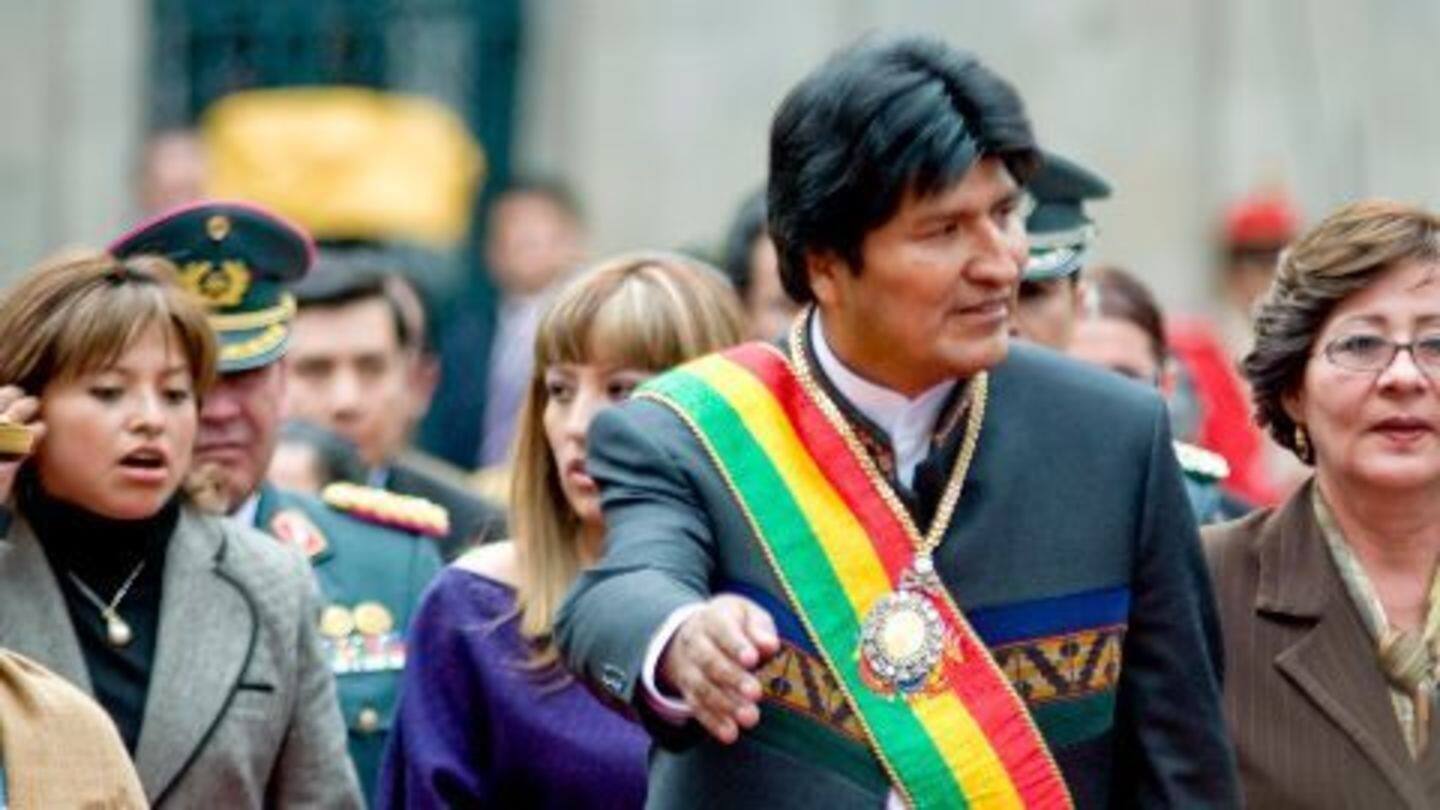
Bolivia to sue Chile over Silala dispute
What's the story
Bolivian President Evo Morales has said his country will file a suit against Chile over a water dispute at the International Court of Justice.
The water dispute is based on the Silala river which originates in Bolivia and flows through Chile into the Pacific ocean.
Chile's Foreign Minister Heraldo Munoz said the country would file a counterclaim as the river is an international waterway.
Introduction
Bolivia and Chile
Bolivia, officially known as the Plurinational State of Bolivia is a landlocked country located in western-central South America bordered to the southwest by Chile.
Bolivia has large natural gas resources which account for over 50% of its GDP.
Chile lies in south-western South America, on Bolivia's south-western border.
It has an export driven economy and copper exports make up over 20% of the economy.
Origins
How did the conflict begin?
The dispute dates from the late 19th Century when Chile went to war with the combined forces of Peru and Bolivia.
Chile won the war and annexed 120,000 sq km of Bolivian land, and Bolivia lost over 400 km of coastline, leaving it landlocked.
A peace treaty signed after the war, assured Bolivians access to Chilean ports, however Bolivia rejected this.
Issues
What are the concerns that Bolivia has raised?
The disputed land, under Chile's control, has some of the world's largest copper mines.
Mines require large amounts of water, and hence Bolivia demands compensation for Chile's use of the Silala river.
Chile's control of the land has rendered Bolivia landlocked, which has been an impediment to trade.
Bolivians allege that Chile also refused to give Bolivia access to ports on Chile's southern coastline.
Personal
The Silala stream
The Silala runs through a 3 km channel built more than a century ago by the Antofagasta & Bolivia Railway Company, which held a concession to use the water. The Bolivian government terminated the concession in 1997.
2009
Silasa agreed upon, but Bolivia backs out
In 2009, Bolivia and Chile entered a preliminary agreement wherein Chile agreed to pay market price for the water it consumed from Bolivia at $5 million per year.
However Bolivia backed out later, stating that the deal should also account for past use of water.
The issue has become highly politicized and has led to the longest running territorial dispute in the world.
24 Sep 2013
ICJ agrees to hear Bolivia's Pacific claim
The International Court of Justice (ICJ), ruled that it has jurisdiction to continue hearing the territorial dispute over access to the Pacific ocean between Bolivia and Chile.
In 2013, Bolivia asked the ICJ to order Chile to negotiate Bolivia's claim to be given access to the Pacific.
Chile unsuccessfully argued that the case did not fall under the jurisdiction of the ICJ.